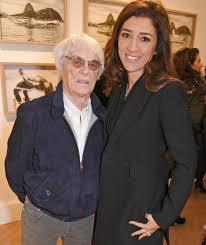
Introduction
Bernie Ecclestone, a name synonymous with the world of Formula 1, has been a pivotal figure in transforming the sport into a global spectacle. His influence stretches across decades, shaping the commercial landscape of Formula 1 and making it one of the most lucrative sports in the world. Understanding Ecclestone’s journey is integral to appreciating the current state of Formula 1 and how it has evolved over the years.
Rise to Prominence
Bernie Ecclestone began his career in motorsport in the 1950s, operating a small racing team before moving into the commercial side of the sport. By the late 1970s, he had gained enough traction to negotiate the first television rights for Formula 1, a groundbreaking move that set the stage for the sport’s financial success. Through strategic partnerships and marketing initiatives, Ecclestone established the Formula One Group, which manages the commercial rights to the championship. His ability to sell television rights and attract sponsors revolutionised how motorsport engaged with audiences worldwide.
Controversies and Challenges
Despite his success, Ecclestone’s tenure was not without controversies. Known for his sometimes autocratic leadership style, he faced criticism over governance issues within the sport. His comments on social and political matters often stirred public outcry, adding to the scrutiny he faced from fans and critics alike. Notably, his comments on issues such as racism and sexism have received backlash, prompting discussions about inclusivity within the sport. Additionally, legal challenges concerning the way the sport’s governance was structured also added complexity to his role.
Recent Developments
In 2017, Ecclestone was replaced as CEO of Formula One Management by American company Liberty Media, which purchased the sport for $8 billion. This transition marked a new era for Formula 1, focusing more on digital engagement and expanding the fan base. However, even after stepping back from daily operations, Ecclestone remained a vocal presence in the sport. In recent interviews, he has expressed his views on the direction Formula 1 is taking, highlighting key areas where he believes the sport can improve.
Conclusion
Bernie Ecclestone’s legacy in Formula 1 is a mix of innovation and controversy. His contributions have been pivotal in turning Formula 1 into a multi-billion-pound global enterprise. As the sport continues to evolve, particularly with new leadership and a changing audience, examining Ecclestone’s impact offers valuable insights into its future. Fans and aspiring motorsport professionals can learn from his career about harnessing opportunities, navigating challenges, and understanding the broader implications of commercial success. As Formula 1 moves forward, the footprints left by Ecclestone will undoubtedly continue to shape its journey.
You may also like

Charlotte Bankes: A Leader in the World of Snowboarding

Jack Willis: The Rising Star of English Rugby
